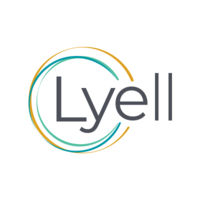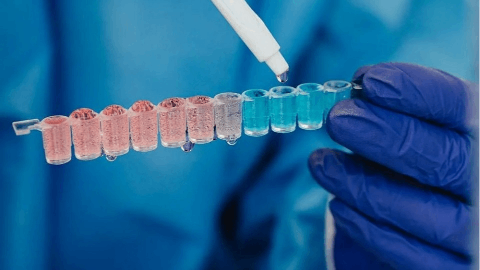预约演示
更新于:2025-05-07

Lyell Immunopharma, Inc.
更新于:2025-05-07
概览
标签
肿瘤
消化系统疾病
皮肤和肌肉骨骼疾病
CAR-T
肿瘤浸润淋巴细胞
自体CAR-T
疾病领域得分
一眼洞穿机构专注的疾病领域
暂无数据
技术平台
公司药物应用最多的技术
暂无数据
靶点
公司最常开发的靶点
暂无数据
| 排名前五的药物类型 | 数量 |
|---|---|
| CAR-T | 4 |
| 肿瘤浸润淋巴细胞 | 3 |
| 自体CAR-T | 2 |
| TCR-T细胞疗法 | 2 |
| 细胞因子 | 1 |
关联
15
项与 Lyell Immunopharma, Inc. 相关的药物作用机制 CD19调节剂 [+1] |
在研适应症 |
非在研适应症- |
最高研发阶段临床1/2期 |
首次获批国家/地区- |
首次获批日期- |
作用机制 CD19调节剂 [+1] |
在研适应症 |
非在研适应症 |
最高研发阶段临床1期 |
首次获批国家/地区- |
首次获批日期- |
5
项与 Lyell Immunopharma, Inc. 相关的临床试验NCT06153095
A Phase 1/2 Open-label Study to Evaluate the Safety, Tolerability, Pharmacokinetics, Pharmacodynamics, and Efficacy of IMPT-514 in Participants with Active, Refractory Lupus Nephritis and Systemic Lupus Erythematosus
This is a Phase 1/2, multi-center, open-label study evaluating the safety and efficacy of IMPT-514, a bispecific chimeric antigen receptor (CAR) targeting cluster of differentiation (CD)19 and CD20 in participants with active, refractory lupus nephritis and systemic lupus erythematosus.
IMPT-514 treatment consists of a single infusion of CAR-transduced autologous T cells administered intravenously after a lymphodepleting therapy regimen consisting of fludarabine and cyclophosphamide. Individual participants will remain in the active post-treatment period for approximately 1 year.
Participants will continue in long-term follow-up for 15 years from treatment.
IMPT-514 treatment consists of a single infusion of CAR-transduced autologous T cells administered intravenously after a lymphodepleting therapy regimen consisting of fludarabine and cyclophosphamide. Individual participants will remain in the active post-treatment period for approximately 1 year.
Participants will continue in long-term follow-up for 15 years from treatment.
开始日期2024-02-15 |
申办/合作机构 |
NCT05891197
A Biomarker Screening Protocol to Support Preliminary Eligibility for Clinical Trials Evaluating Safety and Efficacy of Adoptive T-cell Therapies in Participants With Solid Tumors
Biomarker Screening Protocol for Preliminary Eligibility Determination for Adoptive T-cell Therapy Trials:This is a decentralized, multi-site, US-based biomarker screening study to identify participants who have specific disease indications and tumor expression of target(s) of interest that may inform eligibility for active and future Lyell clinical trials. No investigational treatments will be administered in this non-interventional screening study. Only previously obtained archival tumor tissue will be allowed on this study for biomarker analysis. Fresh tumor biopsies are not permitted on this study. The study will be conducted virtually and participants will utilize telehealth and e-consent modules. If participants tumors express the biomarkers of interest they can be referred to open and enrolling clinical trials. Participation on the screening study does not guarantee enrollment or treatment on an interventional clinical trial.
开始日期2023-05-19 |
申办/合作机构 |
NCT05826535
A Phase 1/2 Multi-Center Study Evaluating the Safety and Efficacy of LYL314, a CD19/CD20 Dual-Targeting Chimeric Antigen Receptor T-Cell Therapy in Participants With Aggressive B-Cell Non-Hodgkin Lymphoma
This is a Phase 1/2, multi-center, open-label study evaluating the safety and efficacy of LYL314, a dual-targeting chimeric antigen receptor (CAR) targeting cluster of differentiation (CD)19 and CD20 in participants with aggressive large B-cell lymphoma.
开始日期2023-05-09 |
申办/合作机构 |
100 项与 Lyell Immunopharma, Inc. 相关的临床结果
登录后查看更多信息
0 项与 Lyell Immunopharma, Inc. 相关的专利(医药)
登录后查看更多信息
14
项与 Lyell Immunopharma, Inc. 相关的文献(医药)2024-03-22·Cancer Research
Abstract 49: LYL119, an investigational ROR1-targeted CAR T-cell product incorporating four novel reprogramming technologies designed for effective cell therapy for solid tumors
作者: Briones, Jessica ; Afreen, Esha ; Martinez, Rowena ; Lam, Viola C. ; Sundar, Purnima ; Vavra, Grant ; Cheung, Alexander S. ; Lynn, Rachel C. ; Lu, Jia ; Casas, Meritxell Galindo ; Barragan, Jessica ; Sims, Candace ; Li, Aileen ; Cheung, Christina ; Potluri, Shobha ; Ali, Omar
2022-12-01·Cancer Immunology Research
Abstract A54: Epi-RTM (epigenetic reprogramming) technology improves stemness, preserves polyclonality and enhances antitumor functionality of tumor infiltrating lymphocytes in nonclinical studies
作者: Patel, Yogin ; Ha, Ngoc-Han ; Vodnala, Suman Kumar ; Kritikou, Joanna ; Kishton, Rigel ; Bedard, Melissa
2022-06-15·Cancer Research
Abstract 2754: LYL797, a ROR1 CAR T-cell therapy with genetic and epigenetic reprogramming for solid tumors
作者: Wang, Grace ; Vodnala, Suman Kumar ; Sundar, Purnima ; Srivastava, Shivani ; Wu, Chang-Chih ; Hiraragi, Hajime ; Sather, Blythe ; Spadinger, Sydney ; Moffett, Howell ; Lynn, Rachel ; Krishnamoorthy, Veena ; Simianer, Courtney ; Park, Spencer ; Albertson, Tina ; Wohlfahrt, Martin ; Potluri, Shobha ; Ong, E-Ching ; Lajoie, Marc ; Song, Lisa ; Boldajipour, Bijan ; Ryu, Byoung ; Sharma, Neeraj ; Weitzner, Brian D. ; Boyken, Scott ; Wang, Xiao ; Shabaneh, Tamer
245
项与 Lyell Immunopharma, Inc. 相关的新闻(医药)2025-05-05
May 01, 2025 -- Lyell Immunopharma, Inc. (Nasdaq: LYEL), a clinical-stage company advancing a pipeline of next-generation CAR T-cell therapies for patients with cancer, today announced that an abstract highlighting new clinical data from the Phase 1/2 trial of LYL314 (formerly IMPT-314) in large B-cell lymphoma will be presented as an oral presentation at the International Conference on Malignant Lymphoma (ICML) 2025 taking place in Lugano, Switzerland June 17-21, 2025.
LYL314 is a dual-targeting CD19/CD20 chimeric antigen receptor (CAR) T-cell product candidate in development for patients with aggressive large B-cell lymphoma. LYL314 has received Regenerative Medicine Advanced Therapy and Fast Track designations from the U.S. Food and Drug Administration for the treatment of patients with relapsed and/or refractory diffuse large B-cell lymphoma in the 3rd or later line setting.
Details of the presentation are below:
LYL314, a CD19/CD20 CAR T-cell candidate enriched for CD62L+ stem-like cells, achieves high rates of durable complete responses in R/R large B-cell lymphoma
Session Name: Focus on New Cellular Therapies
Presentation Date & Time: June 18, 2025, 5:40 pm CEST (11:40 am ET)
Presenting Author: Akil Merchant, MD, Associate Professor and Co-Director of the Lymphoma Program at the Samuel Oschin Cancer Center, Cedars-Sinai Medical Center, Los Angeles, CA
Presentation Number: 106
Location: Room B
Lyell is a clinical-stage company advancing a pipeline of next-generation CAR T-cell therapies for patients with hematologic malignancies and solid tumors. To realize the potential of cell therapy for cancer, Lyell utilizes a suite of technologies to endow CAR T cells with attributes needed to drive durable tumor cytotoxicity and achieve consistent and long-lasting clinical responses, including the ability to resist exhaustion, maintain qualities of durable stemness and function in the hostile tumor microenvironment.
The content above comes from the network. if any infringement, please contact us to modify.

快速通道细胞疗法免疫疗法加速审批临床研究
2025-04-17
RMAT designation was granted based on promising clinical data from the ongoing Phase 1/2 trial of LYL314 in patients with relapsed and/or refractory large B-cell lymphoma.
RMAT designation recognizes the potential of LYL314 to address significant unmet needs of patients with relapsed and/or refractory large B-cell lymphoma and enables an increased frequency of communications with FDA on the development of LYL314
Additional clinical data to be presented this year from the Phase 1/2 trial, including data from patients being treated in the 3rd or later line and 2nd line settings
April 15, 2025 -- Lyell Immunopharma, Inc. (Nasdaq: LYEL), a clinical-stage company advancing a pipeline of next-generation CAR T-cell therapies for patients with cancer, today announced that the U.S. Food and Drug Administration (FDA) granted Regenerative Medicine Advanced Therapy (RMAT) designation to LYL314 (formerly IMPT-314) for the treatment of adult patients with relapsed and/or refractory large B-cell lymphoma after two or more prior lines of therapy. LYL314 is a next-generation dual-targeting CD19/CD20 CAR T-cell product candidate designed to increase complete response rates and prolong the duration of response as compared to the approved CD19‑targeted CAR T-cell therapies for the treatment of aggressive large B-cell lymphoma (LBCL).
RMAT designation provides all the benefits of the Fast Track and Breakthrough Therapy designation programs, including early interactions with the FDA. LYL314’s RMAT designation was granted based on promising early data from the ongoing Phase 1/2 clinical trial.
"The RMAT designation for LYL314, is based on promising clinical data from our ongoing Phase 1/2 trial and highlights the transformative potential of this next-generation CAR T-cell therapy to address the unmet needs of patients with aggressive large B-cell lymphoma," said Lynn Seely, M.D., president and chief executive officer of Lyell. "We believe that by targeting both CD19 and CD20 with equal potency and manufacturing with a process that enriches for more naïve and central memory CAR T cells, LYL314 has the potential to offer patients with aggressive B-cell lymphoma more complete responses and longer duration of response than first-generation CAR T-cell therapies that only target CD19. LYL314 has now received both Fast Track Designation and RMAT designation in the 3rd or later line setting and we look forward to working closely with the FDA as we continue to accelerate this promising CAR T-cell therapy into two pivotal programs for patients."
Initial data from the Phase 1/2 trial of LYL314 were presented at the American Society for Hematology 2024 Annual Meeting in December 2024, including data from 23 patients with relapsed or refractory LBCL in the 3rd or later line setting who received LYL314. The efficacy evaluable population consisted of 17 patients. The overall response rate was 94% (16/17) of patients, with 71% (12/17) of patients achieving a complete response by three months. The median follow up was 6.3 months (range 1.2 – 12.5 months) and 71% of patients were experiencing a response at last follow-up. In the safety evaluable population of 23 patients, no Grade 3 or greater cytokine release syndrome (CRS) was reported. Grade 3 immune effector cell-associated neurotoxicity syndrome (ICANS) was reported in 13% (3/23) of patients with a median time to ICANS resolution of 5 days, and rapid improvement to Grade 2 or lower with standard therapy.
Additional clinical updates from the Phase 1/2 trial of LYL314 are planned for 2025. The company expects to present more mature data from the ongoing Phase 1/2 trial from patients being treated in the 3rd or later line setting and initial data from patients in the 2nd line setting in mid-2025 and to present more mature data from patients treated in the 2nd line setting in late 2025. Two pivotal programs for LBCL are planned, including one for patients treated in the 3rd or later line setting expected to be initiated in mid-2025 and another for patients treated in the 2nd line setting expected to be initiated by early 2026.
The RMAT designation is a program under the 21st Century Cures Act that is intended to expedite the development and review of regenerative medicine therapies for serious or life-threatening diseases or conditions. A regenerative medicine therapy is eligible for RMAT designation if it is intended to treat, modify, reverse or cure a serious or life-threatening disease or condition, and preliminary clinical evidence indicates that the regenerative medicine therapy has the potential to address unmet medical needs for such disease or condition.
RMAT designation provides all Breakthrough Therapy designation features, including early interactions to discuss any potential surrogate or intermediate endpoints. RMATs may be eligible for accelerated approval based on previously agreed-upon surrogate or intermediate endpoints that are reasonably likely to predict long-term clinical benefit.
LYL314 is a next-generation dual-targeting CD19/CD20 CAR T-cell product candidate designed to increase complete response rates and prolong the duration of response as compared to the approved CD19‑targeted CAR therapies for the treatment of LBCL. LYL314 is designed as a true CD19/CD20 “OR” logic-gated CAR targeting either CD19 or CD20 with full potency, and the cell therapy product is manufactured with a process that enriches for CD62L+ cells to generate more naïve and central memory CAR T cells with enhanced stemlike features and antitumor activity.
In addition to RMAT, LYL314 has received Fast Track Designation from the U.S. Food and Drug Administration for the treatment of relapsed and/or refractory LBCL in the 3rd or later line setting.
Lyell is a clinical-stage company advancing a pipeline of next-generation CAR T-cell therapies for patients with hematologic malignancies and solid tumors. To realize the potential of cell therapy for cancer, Lyell utilizes a suite of technologies to endow CAR T cells with attributes needed to drive durable tumor cytotoxicity and achieve consistent and long-lasting clinical responses, including the ability to resist exhaustion, maintain qualities of durable stemness and function in the hostile tumor microenvironment. To learn more, please visit www.lyell.com.
The content above comes from the network. if any infringement, please contact us to modify.

快速通道细胞疗法免疫疗法ASH会议临床结果
2025-03-27
Last year, Miga Health, a virtual cardiovascular care company, told investors it wasn’t going to raise more money and would stop running a central part of its business, transitioning its thousands of patients.
But part of Miga will live on, one of the company’s founders told
Endpoints News
, through a somewhat unusual deal to sell some of its assets to a biotech company, Bitterroot Bio.
The health tech company’s moderate success, followed by its decision to wind down and sell instead, was described by co-founder and CEO Jarrad Aguirre, who built Miga with Andreas Limberopoulos, president, over three years.
In an interview, Aguirre shared the thinking behind the decision.
“What we didn’t want to do was get stuck in the in-between, and then look back over the last 10 years and say, ‘Did we knowingly elect not to take a big swing in heart health, because we felt obligated to continue building, even with the recognition that we weren’t going to get the job done?’” he said.
It’s a set of circumstances that other health tech startups that provide patient services are likely to face in coming years, if they aren’t already, following 2021 and 2022’s boom in venture funding that’s been followed by the current
pullback
.
And it raises the question, Aguirre said, of whether patient services can generate the returns those investors want in an environment where the cost of capital is much higher.
“There is a fundamental tension between building a healthcare services business that is meant to scale and meant to be inclusive, in one that fits the math of venture,” Aguirre said.
Aguirre and Limberopoulos started Miga in late 2021 and raised a $12 million seed round shortly after. The ambition was to build a platform that could serve millions of people, with the aim of “eliminating heart disease, as outlandish as that might be,” Aguirre said.
Through Miga, patients could get care for their heart health through virtual medical visits as well as visits with dietitians and health coaches.
By 2024, Miga had a virtual clinic running in more than 40 states with thousands of patients. The business, Aguirre said, was growing faster than ever when the company opted to explore a sale, with about a third of patients joining in the final months of Miga.
If you want to build a successful healthcare services business that reaches millions of people, taking insurance is an important part. But that’s not necessarily a high-margin business and is expensive to fund — potentially requiring hundreds of millions of dollars of investment to reach scale.
That, Aguirre realized, was going to be hard to do in a venture-created company.
“We just don’t believe that there will be companies like Miga that take insurance and get to the scale that we think is necessary,” Aguirre said.
Aguirre said transferring patients off of Miga’s platform was a “bittersweet” experience, but one it had to do going through an M&A process, even if Miga had sold to another care delivery company. But because Miga still had money, it was able to take its time, he said. (The digital health newsletter
Exits and Outcomes
and
Stat News
previously
reported
that Miga had stopped taking patients.)
“When we started Miga, the plan was to build forever, but the plan changed,” Aguirre said. “That’s OK.”
Going forward, Bitterroot Bio will take over the tech assets that Miga built. As part of the deal, which has closed, Limberopoulos is joining the biotech to head the technology strategy team. Aguirre plans to serve as a part-time advisor to Bitterroot, and is becoming the senior vice president of medical affairs for Lyell Immunopharma. The terms of the deal weren’t disclosed, and Bitterroot declined to comment.
Bitterroot is working to develop treatments for preventing secondary cardiac events for people who have had heart attacks or a stroke. It raised
a $145 million Series A
round in 2023, and has upcoming data on its Anti-CD47 therapy, BRB-002, that will be presented later this month.
Aguirre said he’s optimistic that putting Miga’s tech, which previously facilitated healthcare services through an app, inside a biotech could lead to new developments. It remains to be seen how Bitterroot plans to incorporate it into its research and development.
“
If you want to develop new medicines and fundamentally change paradigms, that’s going to happen with a team that looks different with technology embedded and within the company,” Aguirre said. “We don’t see that across companies right now.”
Aguirre is aware that not all founders would make the decisions he has.
“There are many paths to making change,” Aguirre said. “It would be very unusual if all the change we needed happened through VC-backed companies.”
He hopes sharing about Miga’s outcome might help other founders in a similar position. Questions like “Do I want to keep building this company and why?” can feel taboo, he said. But to him, it’s an important one, especially in an environment when many companies keep going long past the moment when it’s clear their plans won’t work out.
“I would argue that a form of quitting in plain sight is actually continuing to build,” he said. “Because you are knowingly spending more money, using your time, pushing the team ahead, likely with the foresight that it’s not going to achieve much to make healthcare better. And so we actually consider that a form of insidious quitting.”
(This story is from our Health Tech newsletter. If you’d like to sign up,
just click here
.)
100 项与 Lyell Immunopharma, Inc. 相关的药物交易
登录后查看更多信息
100 项与 Lyell Immunopharma, Inc. 相关的转化医学
登录后查看更多信息
组织架构
使用我们的机构树数据加速您的研究。
登录
或

管线布局
2025年11月07日管线快照
管线布局中药物为当前组织机构及其子机构作为药物机构进行统计,早期临床1期并入临床1期,临床1/2期并入临床2期,临床2/3期并入临床3期
药物发现
2
7
临床前
临床1期
3
1
临床2期
其他
2
登录后查看更多信息
当前项目
| 药物(靶点) | 适应症 | 全球最高研发状态 |
|---|---|---|
IMPT-314 ( CD19 x CD20 ) | B细胞淋巴瘤 更多 | 临床2期 |
IMPT-514 ( CD19 x CD20 ) | 抗中性粒细胞胞质抗体相关性血管炎 更多 | 临床1期 |
LYL-132 ( NY-ESO-1 ) | 食管鳞状细胞癌 更多 | 临床1期 |
LYL-797 ( ROR1 ) | 原发性腹膜癌 更多 | 临床1期 |
trIL-12(Lyell Immunopharma) ( IL-12R ) | 肿瘤 更多 | 临床前 |
登录后查看更多信息
药物交易
使用我们的药物交易数据加速您的研究。
登录
或

转化医学
使用我们的转化医学数据加速您的研究。
登录
或

营收
使用 Synapse 探索超过 36 万个组织的财务状况。
登录
或

科研基金(NIH)
访问超过 200 万项资助和基金信息,以提升您的研究之旅。
登录
或

投资
深入了解从初创企业到成熟企业的最新公司投资动态。
登录
或

融资
发掘融资趋势以验证和推进您的投资机会。
登录
或

生物医药百科问答
全新生物医药AI Agent 覆盖科研全链路,让突破性发现快人一步
立即开始免费试用!
智慧芽新药情报库是智慧芽专为生命科学人士构建的基于AI的创新药情报平台,助您全方位提升您的研发与决策效率。
立即开始数据试用!
智慧芽新药库数据也通过智慧芽数据服务平台,以API或者数据包形式对外开放,助您更加充分利用智慧芽新药情报信息。
生物序列数据库
生物药研发创新
免费使用
化学结构数据库
小分子化药研发创新
免费使用

